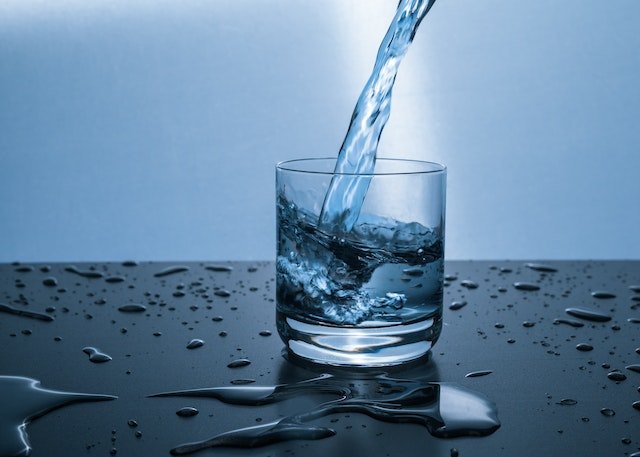Avoiding Dehydration During Stomach Illness
There are some affiliate links below, but they are all products I highly recommend. For more info, view my disclosure here.
Uh oh, stomach troubles got you down? Diarrhea and vomiting can leave you drained, but proper hydration is your best line of defense.
We’ll be your guide through the gauntlet of stomach bugs. Learn the warning signs of dehydration and how to bounce back fast.
Discover the ideal fluid replacements and rehydration solutions to retain your electrolytes. We’ve got you covered with the most effective ways to hydrate when nauseous.
Arm yourself with knowledge to minimize the misery of stomach illness. Stay savvy and proactive so you can recover quickly and completely. Don’t let dehydration intensify your discomfort – we’ll help you keep the fluids flowing!

Understanding the Importance of Hydration
You need to understand the importance of staying hydrated during stomach illness and diarrhea.
When you’re experiencing these conditions, your body is losing fluids at an increased rate, which can lead to dehydration if not properly managed. Dehydration occurs when you lose more fluids than you take in, and it can have serious consequences for your health. It can cause symptoms such as dizziness, fatigue, dry mouth, and decreased urine output. In severe cases, it can even lead to organ failure and death.
That’s why it’s crucial to replenish the lost fluids by drinking plenty of water and electrolyte-rich beverages. By staying hydrated, you can help your body maintain its normal functioning and speed up the recovery process. Water helps to flush out toxins from your system, supports digestion, and keeps your energy levels up. It also helps to replace the electrolytes that you might be losing through diarrhea or vomiting.
Therefore, make sure to drink fluids regularly, even if you don’t feel like it, to prevent dehydration and support your body’s healing process.
Signs and Symptoms of Dehydration
If you’re experiencing symptoms such as dry mouth, fatigue, and decreased urine output, it may be a sign that you’re becoming dehydrated. Dehydration occurs when your body loses more fluids than it takes in. It’s important to recognize the signs and symptoms of dehydration so that you can take immediate action to prevent further complications.
One of the most common signs of dehydration is a dry mouth. Your mouth may feel sticky or parched, and you may have difficulty swallowing. Fatigue is another symptom to watch out for. When you’re dehydrated, your body doesn’t have enough fluid to carry out its normal functions, which can leave you feeling tired and sluggish.
Another telltale sign of dehydration is decreased urine output. If you’re not urinating as much as usual or if your urine is dark in color, it may be a sign that your body is dehydrated. Other symptoms include dizziness, headache, and muscle cramps.
If you’re experiencing any of these symptoms, it’s important to replenish your body with fluids immediately. Drink plenty of water, sports drinks, or oral rehydration solutions to help restore the electrolyte balance in your body. Avoid caffeine and alcohol, as they can further dehydrate you.
Fluid Replacement Options
One option for replenishing fluids is to drink water, sports drinks, or oral rehydration solutions. When you’re dealing with stomach illness or diarrhea, it’s important to stay hydrated.
Water is a simple and effective choice. It can help replace the fluids your body has lost and prevent dehydration.
Sports drinks can also be a good option because they contain electrolytes, which can help replenish the minerals your body needs. These drinks often have a good taste, making them more appealing when you’re feeling sick.
Another alternative is oral rehydration solutions. These solutions are specifically designed to replace fluids and electrolytes lost during diarrhea. They contain the right balance of water, salt, and sugar to help your body absorb the fluids more effectively. You can find these solutions at your local pharmacy or make them at home with a recipe provided by your healthcare provider.
Electrolyte Balance and Rehydration Solutions
To maintain a healthy electrolyte balance, it’s important to choose rehydration solutions that contain the right amount of water, salt, and sugar. When you’re dealing with stomach illness and diarrhea, your body loses essential fluids and electrolytes. It’s crucial to replenish them to avoid dehydration. Look for rehydration solutions that have the right balance of water, salt, and sugar to effectively replace what you’ve lost.
When selecting a rehydration solution, opt for ones that contain electrolytes like sodium, potassium, and chloride. These electrolytes help your body maintain the right balance of fluids and minerals. They also aid in muscle function and nerve impulses.
Water is essential for rehydration, as it helps transport electrolytes throughout your body. It’s important to drink enough water to replenish what you’ve lost. However, too much water without the necessary electrolytes can dilute the remaining electrolytes in your body, leading to an imbalance.
Salt is another crucial component of rehydration solutions. It helps your body retain water and restores the balance of sodium lost through diarrhea. Without enough salt, your body may struggle to retain fluids, leading to further dehydration.
Finally, sugar is necessary in rehydration solutions to help your body absorb water and electrolytes more effectively. It also provides a source of energy and aids in the absorption of sodium and water.
Hydrating Foods and Beverages
Hydrating foods and beverages like watermelon and coconut water can help replenish your body’s fluids and electrolytes. When you’re suffering from stomach illness or diarrhea, it’s important to stay hydrated to prevent dehydration. These conditions can cause excessive fluid loss, leading to fatigue, dizziness, and even more serious complications. By consuming hydrating foods and beverages, you can help restore the balance in your body.
Watermelon is an excellent choice when it comes to hydration. It contains about 92% water, making it a refreshing and hydrating fruit. Additionally, watermelon is rich in essential vitamins and minerals, such as vitamin C and potassium. These nutrients not only help in replenishing your body’s fluids but also support your immune system.
Coconut water is another great option for hydration. It’s a natural source of electrolytes, such as potassium, sodium, and magnesium, which are essential for maintaining proper fluid balance. Coconut water is also low in calories and fat-free, making it a healthy choice for rehydrating your body.
Incorporating hydrating foods and beverages into your diet is crucial to stay hydrated during stomach illness and diarrhea. Remember to drink plenty of fluids, including water, alongside these hydrating options. Take care of your body and prioritize hydration to recover quickly and maintain your overall well-being.
Tips for Staying Hydrated When Nauseous or Vomiting
When you’re feeling nauseous or vomiting, it’s important to take small sips of clear fluids to stay hydrated and prevent further discomfort. While it may be tempting to avoid drinking anything due to the fear of worsening your symptoms, staying hydrated is crucial to your recovery.
Clear fluids such as water, electrolyte solutions, and herbal teas can help replenish the fluids and electrolytes you may be losing through vomiting or diarrhea.
Avoid consuming sugary or caffeinated drinks as they can irritate your stomach and worsen your symptoms. Stick to small sips at regular intervals rather than large quantities at once, as this can help prevent further vomiting. If you’re unable to keep liquids down, try sucking on ice chips or freezing clear fluids into popsicles to slowly consume them. It’s also important to listen to your body and stop drinking if you feel that it’s making your nausea worse.
In addition to staying hydrated, it’s essential to rest and give your body time to recover. If your symptoms persist or worsen, it’s advisable to seek medical attention.
When to Seek Medical Attention
If your symptoms persist or worsen, it’s important to seek medical attention. While most cases of stomach illness and diarrhea can be managed at home, there are certain situations where medical intervention is necessary to ensure your well-being.
If you experience severe abdominal pain, high fever, bloody stools, or persistent vomiting that prevents you from keeping any fluids down, it’s crucial to seek immediate medical help. These symptoms could be indicative of a more serious underlying condition that requires medical treatment.
Additionally, if you notice signs of dehydration such as dry mouth, dark urine, dizziness, or extreme thirst, it’s important to consult a healthcare professional. Dehydration can be especially dangerous, especially in vulnerable populations such as young children and the elderly. In severe cases, intravenous fluids may be required to rehydrate the body and restore electrolyte balance.







